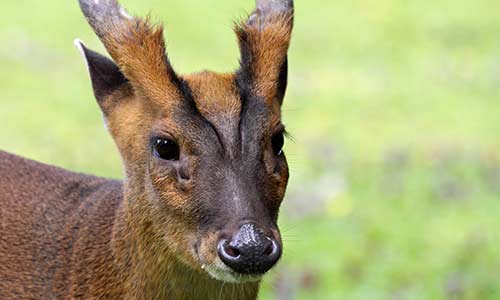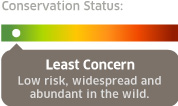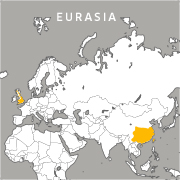Reeves's Muntjac
Munticus reevesi
You Can Find This Animal in the Children's Zoo
I hear a deer!
Muntjacs are sometimes called barking deer because of the distinctive sound of their call.
Committed to Conservation
Zoo New England participates in the Reeves's muntjac Species Survival Plan. By sharing research and knowledge, participating institutions work together to establish guidelines that best ensure the health of captive populations, and with success, the survival of endangered species.




